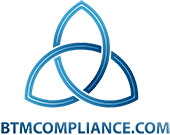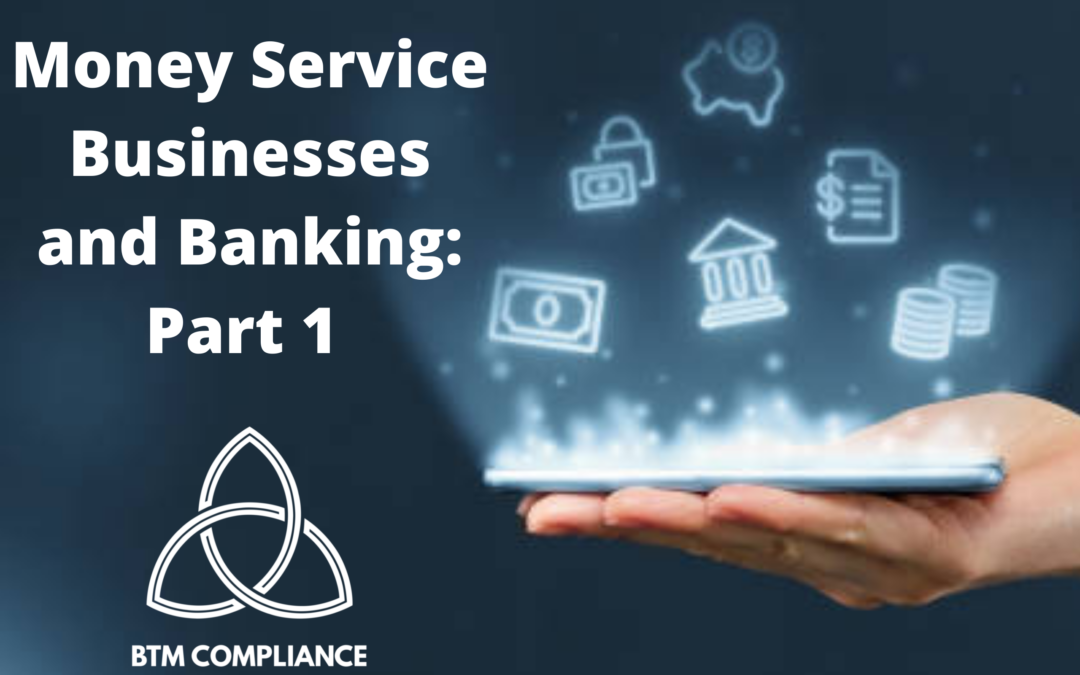Starting a Money Services Business (MSB) can be an intimidating process. There are a number of things an owner must do to get their MSB operational, and also stay compliant with the federal and state regulations. On top of that, many banks will not work with an MSB, because their institution will not support the “high risk” that comes with the business. Before we get into all that though, let’s take a look at what a Money Service Business is.
What is a money service business (MSB)?
A “money service business” is defined as any person doing business, on a regular basis, in one or more of the following capacities —
- Check Casher
- Currency Dealer or Exchanger
- Issuer of Traveler Checks, Money Orders, or Stored Value
- Seller or Redeemer of Traveler’s Checks, Money Orders, or Stored Value
- Money transmitter (Bitcoin ATMs fall into this category)
- U.S. Postal Service
Money service businesses do not include banks or individuals registered and regulated by the Securities and Exchange Commission or the Commodity Futures Trading Commission.
For the complete regulatory definition of a “money services business” click here.
What is required for you as an MSB?
When it comes to money service businesses, you need to make sure that you are staying compliant with the federal and state regulations to avoid fines, or in some cases criminal charges. All of these things will need to be in place for a bank to consider letting you set up an account for your MSB:
- Registering your MSB with FinCEN
- A written Anti-Money Laundering (AML) program
- Assignment of a compliance officer
- Continuous monitoring and compliance efforts, which includes record-keeping and reporting requirements
- Regular Bank Secrecy Act (BSA) compliance training and a record of completed training
- Regular auditing or “Independent Reviews”
- Business Risk Assessment
To learn more about this process check out our previous blog Bitcoin ATM Compliance – What You Need to Know.
Cryptocurrency, Bitcoin ATMs, and Banking
There is no doubt that both cryptocurrency and Bitcoin ATMs are on the rise. Moreover, just like not all cryptocurrencies are the same, the same is true about MSBs operating Bitcoin ATMS. Banks are very cautious about working with these businesses because of the risk associated with them, and because not all MSBs operate the same. Banks are relying on their BSA compliance and risk management teams to put minimum standards and systems in place that MSBs must adopt to ensure a standard of operation is met, while also assessing the risk of your MSB to something they can accept. This bank assessment will take into account regulations, licensing, geographical area of operation, completeness of the AML program, policies and procedures, to name a few. Unfortunately, if you are a new Bitcoin ATM operator or MSB, even if your compliance efforts are where they need to be, some banks will still turn you away. This is because as a new business you are high risk with little or no operational history.
Not being able to get banking for your money service business might seem like the end of the world, but luckily for you, we at BTM Compliance have the insight to help you navigate through this challenge.
If you want to learn more about Bitcoin ATMs and banking, join us for a webinar next Tuesday, May 17th at 4pm est time. To register click here.
Also, make sure to tune in for part two coming later next week.
About the Author
BTM Compliance, LLC, is a Veteran-owned and operated company providing federal compliance services to operators of the Bitcoin ATM industry. To learn more about Bitcoin ATM Compliance and the services we provide contact us here.
*This blog article cannot and does not contain legal advice. The information is provided for general informational purposes only which are factually based on research and personal experience. This is not a substitute for professional advice from your own legal counsel. Accordingly, before taking any actions based upon such information, we encourage you to consult with your legal counsel. We do not provide any kind of legal advice. The use or reliance of any information contained in this blog is solely at your own risk.


